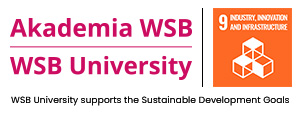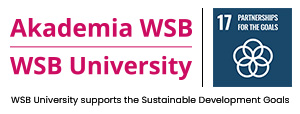


At the WSB University, we take advantage of opportunities to develop international cooperation, and the Erasmus+ program provides an excellent opportunity to exchange experiences and knowledge with partners from around the world. As part of this program, Monika Banach-Kokoszka from the WSB University in Dąbrowa Górnicza had the pleasure to participate in a unique trip to Moldova, where she spent several days as a guest lecturer at the Free International University of Moldova (ULIM) in Chisinau.
During her stay, which lasted from March 25 to 29, Monika Banach-Kokoszka had the opportunity not only to visit the university campus, but also to meet with Valentina Ciumacenco, ULIM's Vice Rector for International Relations. These meetings resulted in interesting conversations about future cooperation and opportunities to develop international project initiatives that can strengthen ties between WSB University and ULIM.
During her visit, Monika Banach-Kokoszka conducted an academic course on topics related to state security, the evolution of diplomacy and the diplomacy of the European Union, with an emphasis on crisis management and the promotion of global agreements, using specific case studies as examples. In addition, inspired by her interests, she gave a lecture on women's fashion in the 1920s, 1930s and 1940s, capturing the attention of the students with her passion and knowledge of the subject.
The visit to ULIM was also an opportunity to exchange experiences with representatives of the local academic community and administrative staff, as well as to participate in various technical visits and working meetings. Such interactions are extremely valuable as they open new perspectives for cooperation and enable joint research projects and educational initiatives.


